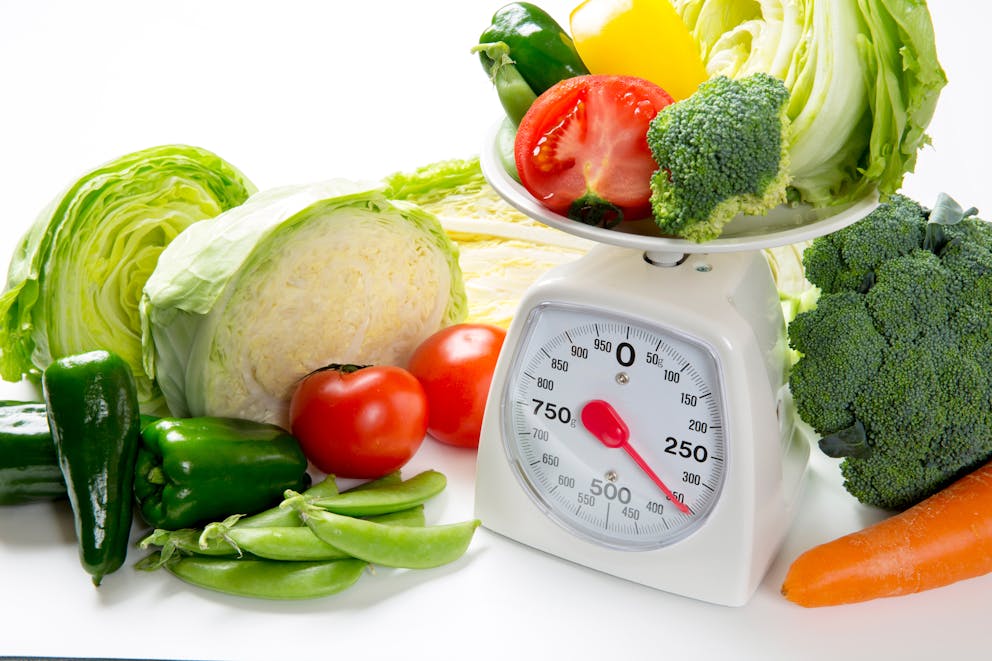Will Vegetable Carbohydrates Stop Ketosis
Vegetables are important for a healthy ketogenic diet. Many people worry that eating vegetables will kick them out of ketosis, but that's not true if you choose wisely. Let's explore the world of vegetables in ketosis and clear up some misconceptions.
We'll share the top picks for keto-friendly veggies, explain how they fit into a low-carb lifestyle, and give you practical tips for incorporating them into your meals.
Understanding Carbs in Vegetables
Not all carbs are the same, especially in vegetables. The key is to focus on net carbs, which are total carbohydrates minus fiber.
Fiber doesn't spike blood sugar or insulin levels, so it doesn't count toward your daily carb limit on keto.
Many low-carb vegetables are packed with fiber, vitamins, and minerals. They provide essential nutrients without affecting your ketosis efforts.
The Glycemic Index and Vegetables
The glycemic index (GI) measures how quickly a food raises blood sugar levels. Low GI foods are ideal for keto because they minimally impact insulin.
Most non-starchy vegetables have a low GI, making them perfect for a ketogenic diet. For example, a spinach salad with celery has such a low GI that it won't spike your insulin at all.
This means you can enjoy these veggies without worrying about getting knocked out of ketosis.
Top Keto-Friendly Vegetables
When it comes to vegetables in ketosis, some standout options consistently make the cut. These veggies are low in net carbs but high in nutrients, making them ideal for a ketogenic lifestyle.
Leafy Greens
Leafy greens are amazing keto vegetables. They're incredibly low in carbs and calories but packed with vitamins, minerals, and antioxidants. Some top choices include:
Spinach
Kale
Arugula
Swiss chard
Lettuce varieties
These greens are versatile and can be used raw in salads or cooked in various dishes. They're also an excellent source of magnesium potassium, which are crucial for maintaining electrolyte balance on keto.
Cruciferous Vegetables
Cruciferous veggies veggies are another fantastic option for vegetables in ketosis. They're low in carbs and high in fiber, making them filling and nutritious. Some keto-friendly cruciferous vegetables include:
Broccoli
Cauliflower
Brussels sprouts
Cabbage
These vegetables are rich in compounds called glucosinolates. Glucosinolates have been linked to various health benefits, including reduced inflammation and potential cancer-fighting properties.
Above-Ground Vegetables
As a general rule, vegetables that grow above ground tend to be lower in carbs than those that grow below ground. Some excellent above-ground options for keto include:
Zucchini
Bell peppers
Asparagus
Green beans
These vegetables are not only low in carbs but also provide a good source of vitamins C and K, as well as various B vitamins.

The Role of Vegetables in Ketosis
Incorporating vegetables into your ketogenic diet isn't just about staying within your carb limit. It's about optimizing your health and supporting your body's functions while in ketosis.
Nutrient Density
One of the biggest challenges of a ketogenic diet is getting enough micronutrients. This is where vegetables shine.
They're packed with essential vitamins and minerals that can be hard to get from other keto-friendly foods. For instance, bell peppers are an excellent source of vitamin C, while spinach provides iron and folate.
These nutrients are crucial for maintaining overall health and supporting your body's metabolic processes.
Fiber for Digestive Health
Fiber is often overlooked on keto, but it's essential for digestive health and can actually help maintain ketosis. Vegetables are one of the best sources of fiber on a ketogenic diet.
Fiber helps slow down digestion, which can help you feel fuller for longer and stabilize blood sugar levels. It also feeds beneficial gut bacteria, supporting a healthy microbiome.
Alkalizing Effect
A common concern with ketogenic diets is the potential for ketoacidosis, where the body's pH becomes too acidic. However, this is primarily a risk for people with type 1 diabetes and is extremely rare in healthy individuals following a well-formulated keto diet.
That said, including plenty of vegetables in your keto diet can help maintain a healthy pH balance. Many vegetables have an alkalizing effect on the body, which can help counteract the slight increase in acidity that can occur during ketosis.
How Vegetables Support Fat Burning
Contrary to what some might think, vegetables actually support the fat-burning process in ketosis. They play a crucial role in maintaining a healthy liver, which is essential for efficient fat metabolism.
When you're in ketosis, your body mobilizes fat from your fat stores. This fat needs to be processed by the liver. Without adequate vegetable intake, you risk developing a fatty liver, which can hinder your body's ability to burn fat effectively.
Vegetables provide the nutrients your liver needs to function optimally and process all that fat. They also help prevent the accumulation of fat in the liver, keeping it healthy and efficient.
Addressing Common Concerns About Vegetables in Ketosis
Despite the benefits, some people are hesitant to include vegetables in their ketogenic diet. Let's address some common concerns:
"Won't vegetables kick me out of ketosis?"
This is a common misconception. While vegetables contain carbohydrates, the amount in low-carb veggies is minimal, especially when you consider the fiber content.
As long as you're mindful of your portions and stick to low-carb options, vegetables won't kick you out of ketosis.
"I've heard I should avoid cruciferous vegetables on keto."
Some people worry about cruciferous vegetables due to their goitrogenic properties, which can interfere with thyroid function in large amounts.
However, for most people, the benefits of these vegetables far outweigh any potential risks. If you have thyroid issues, it's best to consult with your healthcare provider about the appropriate intake.
"Vegetables spike my blood sugar."
If you notice blood sugar spikes after eating certain vegetables, it could be due to individual sensitivities or consuming too large a portion.
Start with smaller amounts and monitor your response. You may also want to pair your vegetables with healthy fats, which can help slow down the absorption of carbs.
Practical Tips for Incorporating Vegetables into Your Keto Diet
Now that we've covered the importance of vegetables in ketosis, let's look at some practical ways to include them in your daily meals:
Use Vegetables as Substitutes
Get creative with your vegetable use. Try these keto-friendly substitutions:
Use cauliflower rice instead of regular rice.
Make zucchini noodles to replace pasta.
Use lettuce wraps instead of bread or tortillas.
Mash cauliflower as a low-carb alternative to mashed potatoes.
These swaps can help satisfy cravings for higher-carb foods while keeping you in ketosis.
Add Vegetables to Every Meal
Make it a goal to include vegetables in every meal. Here are some ideas:
Add spinach or kale to your morning omelet.
Use cucumber slices as a base for tuna or chicken salad.
Snack on celery sticks with almond butter.
Include a side salad with your dinner.
By consistently incorporating vegetables, you'll ensure you're getting a steady supply of essential nutrients.
Experiment with Different Cooking Methods
Don't get stuck in a rut with your vegetable preparation. Try different cooking methods to keep things interesting:
Roast Brussels sprouts with olive oil and garlic.
Sauté zucchini and bell peppers for a quick side dish.
Grill asparagus for a smoky flavor.
Steam broccoli and top with melted cheese.
Experimenting with different cooking methods can help you find new favorites and prevent boredom with your keto meals.

Vegetables and Weight Loss
Many people follow the keto diet for weight loss, and for good reason. The ketogenic diet can be incredibly effective for shedding pounds, and vegetables can play a supporting role in this process.
Low in Calories
Most vegetables are naturally low in calories, making them an excellent choice for a weight loss journey. When you fill your plate with low-calorie, nutrient-rich vegetables, you can eat a satisfying volume of food without consuming too many calories.
High in Water Content
Many vegetables have a high water content, which can contribute to feelings of fullness and satiety. This can be particularly helpful for weight loss, as it can prevent overeating and help you stay within your calorie goals.
Red Bell Peppers: A Keto-Friendly Powerhouse
Among the many keto-friendly vegetables, red bell peppers stand out as a true nutritional powerhouse. They are not only low in carbs but also packed with essential vitamins, minerals, and antioxidants that offer various health benefits.
Rich in Antioxidants
Red bell peppers are an excellent source of antioxidants, particularly vitamin C and phenolic compounds.
Antioxidants help protect your cells from damage caused by free radicals, which are unstable molecules that can contribute to inflammation, heart disease, and other chronic conditions.
May Lower Heart Disease Risk
The high levels of antioxidants in red bell peppers, especially vitamin C, may help reduce the risk of heart disease.
Vitamin C is essential for collagen production, which helps keep your blood vessels healthy and strong.
Red bell peppers also contain potassium, a mineral that helps regulate blood pressure.
Supports Blood Sugar Control
While red bell peppers do contain natural sugars, they are low in net carbs and have a low glycemic index.
This means they have a minimal impact on blood sugar levels, making them a suitable choice for people with diabetes or those following a ketogenic diet to improve blood sugar control.
Promote Gut Health
Red bell peppers are a good source of fiber, which is essential for a healthy gut microbiome. Fiber acts as a prebiotic, feeding the beneficial bacteria in your gut. These gut bacteria play a crucial role in digestion, immune function, and overall health.
Veggie Victory
Incorporating a variety of keto vegetables like spinach, broccoli, and zucchini not only ensures you get essential nutrients and fiber but also keeps your meals flavorful and satisfying.
These vegetables are low in carbs, making them perfect for the keto diet, and they support overall health by providing vitamins, minerals, and antioxidants. Embrace keto vegetables to enhance your keto journey and unlock a new level of dietary success.
Conclusion
Vegetables are not just compatible with a ketogenic diet; they're essential for optimal health and sustained success.
Choosing the right vegetables in ketosis can support your body's nutritional needs, maintain a healthy pH balance, and even enhance your fat-burning efforts.
Remember, a well-formulated ketogenic diet isn't just about limiting carbs and increasing fat. It's about nourishing your body with nutrient-dense foods that support your overall health.
Vegetables play a crucial role in this balance. As you continue on your keto journey, embrace vegetables as powerful allies in your quest for health and wellness.
With the right choices and preparation methods, you can enjoy a wide variety of delicious, low-carb vegetables while maintaining ketosis and reaping all the benefits of this powerful dietary approach.
Previous blog
Sleeping but Dont Feel RestedNext blog
Zucchini Goat Cheese RollsTags

Popular
08/21/2024
55.7K views
02/23/2025
46.8K views
11/18/2024
281.2K views
03/18/2024
11/21/2022




